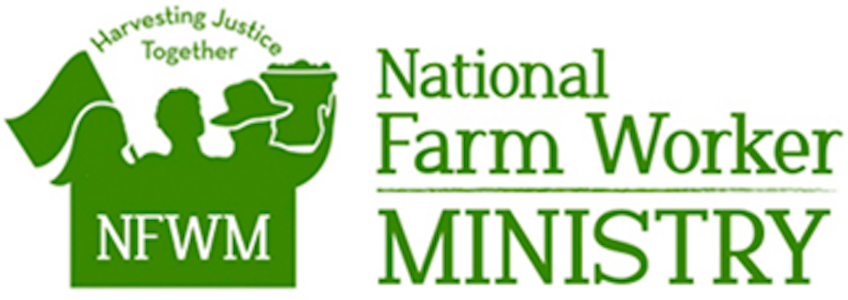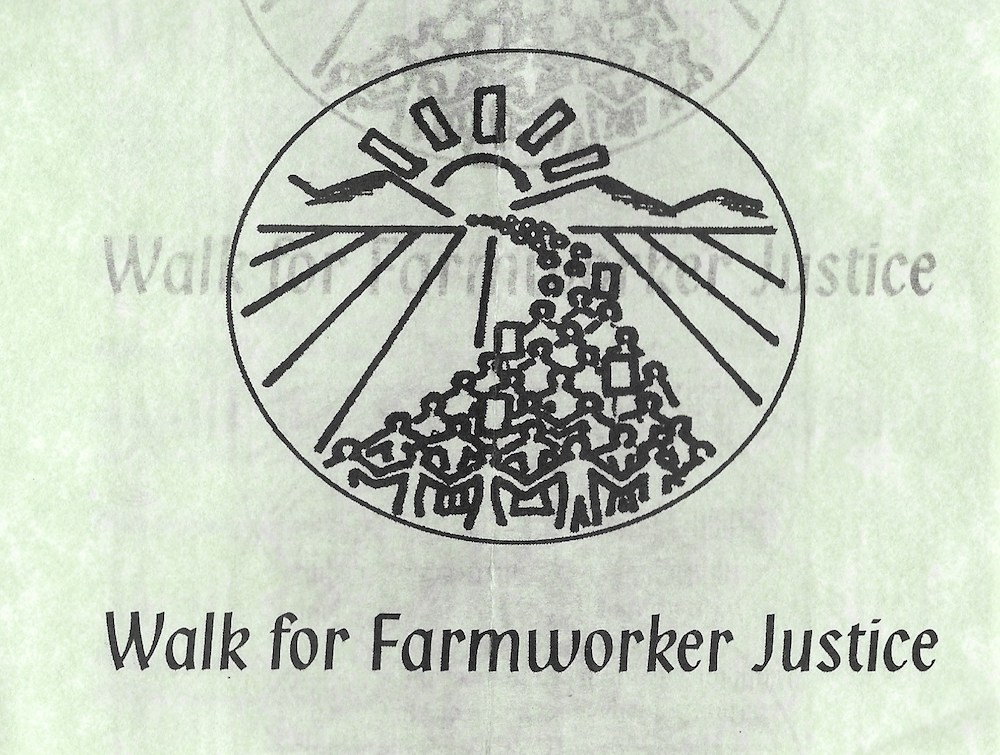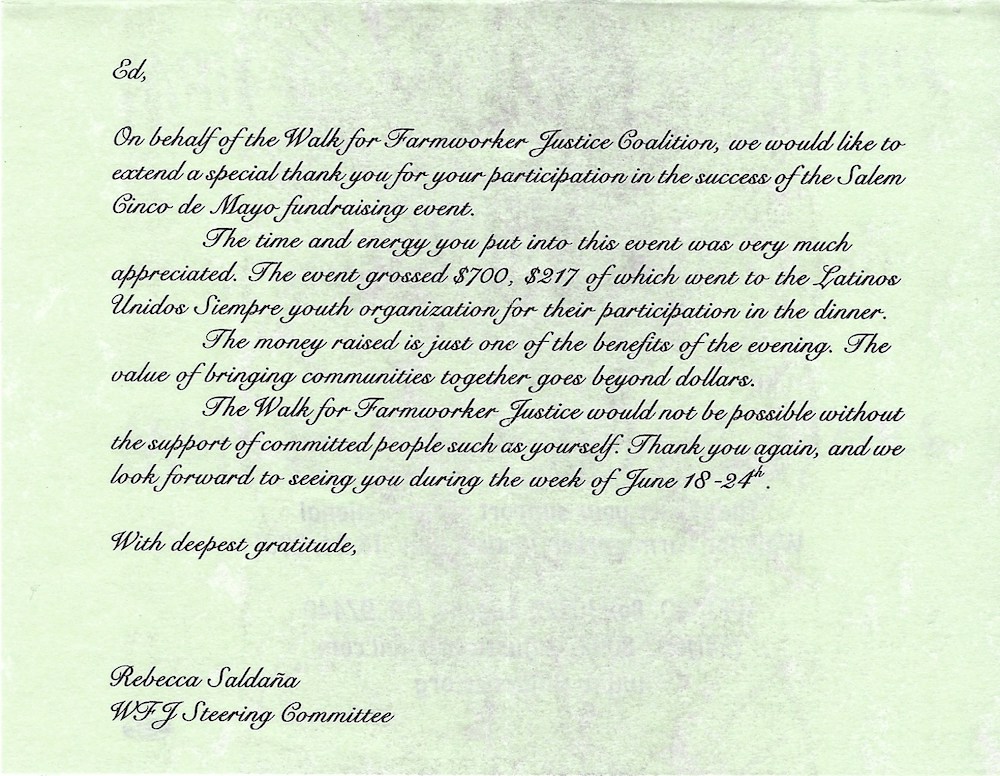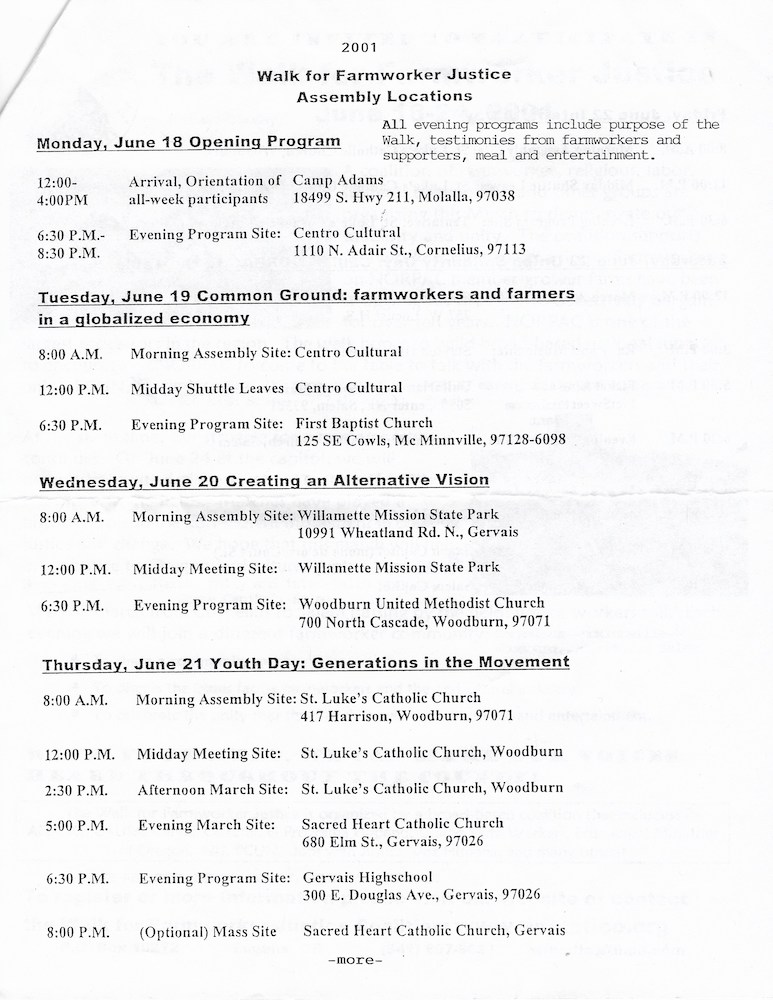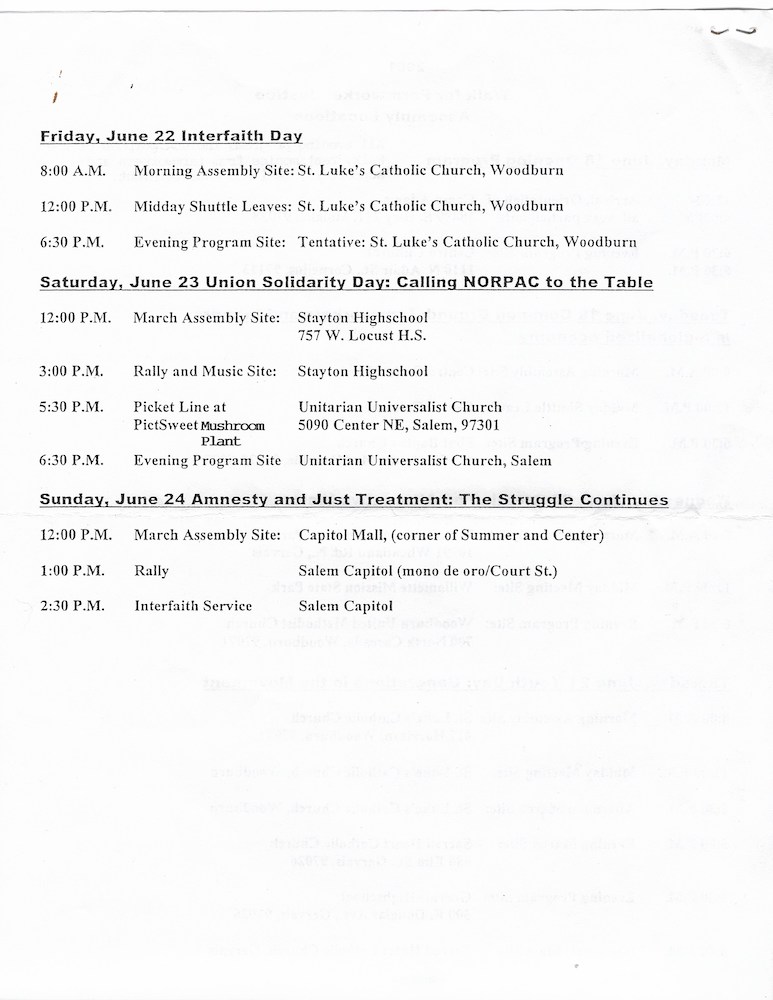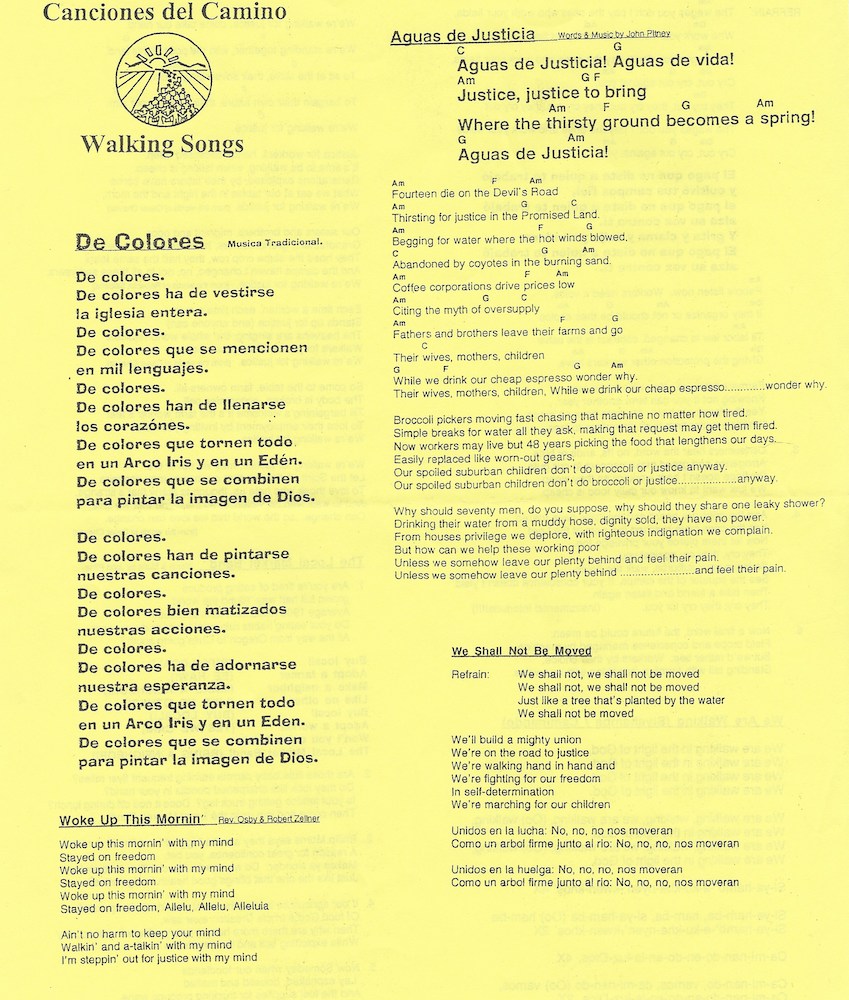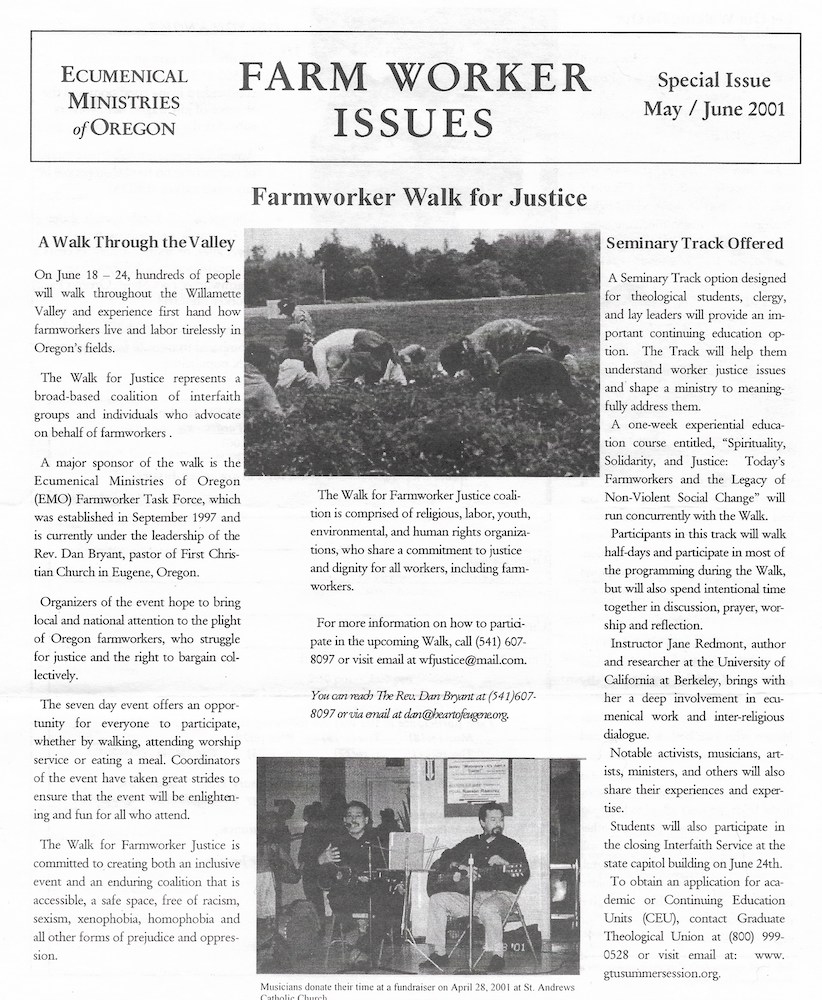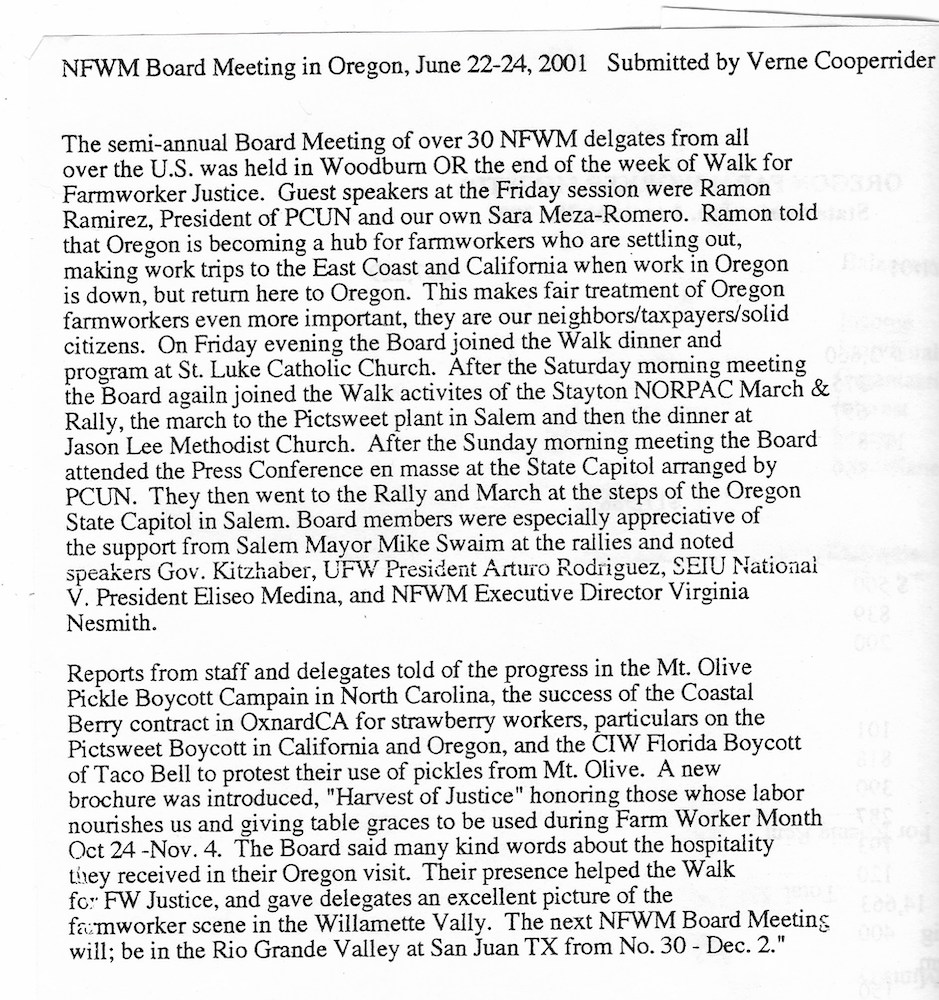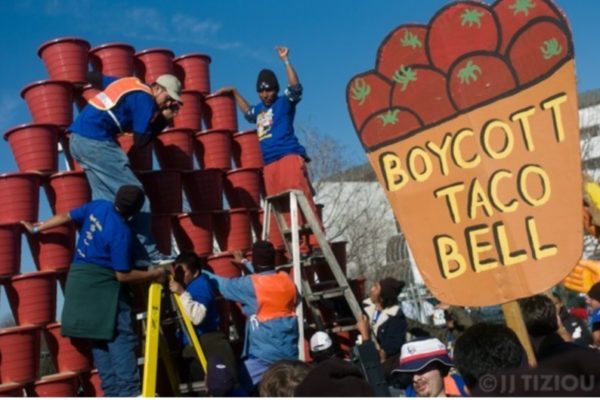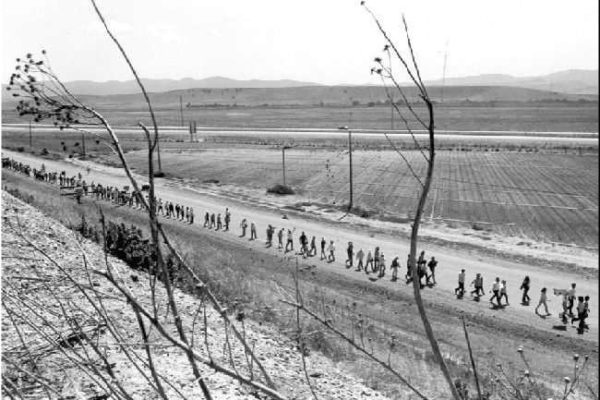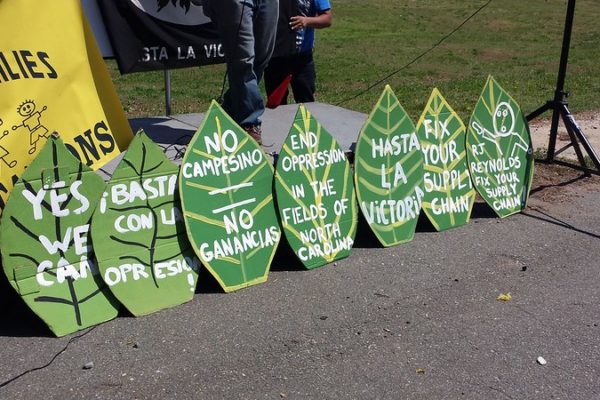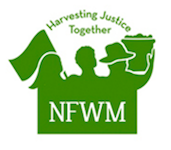“I remember Sam Trickey and Brother Mark Schroder, a Fransiscan from California – they shouted ‘NORPAC, we’ll be back.’ It took years to sign an agreement with PCUN to provide better housing, working conditions, and wages. It’s a good reminder that the struggle is long, the struggle is hard. It reminds me of the old testament prophets,” said Ed Brandt, retired Lutheran pastor and former Board Chair and current member of the Farm Worker Ministry-Northwest, a regional partner of the NFWM.
Ed’s memory recounts the NFWM’s Board Meeting in 2001 when the members traveled to Woodburn, Oregon for the March for Farm Worker Justice in support of the boycott of NORPAC Foods, Inc who had refused to negotiate with Pineros Y Campesinos Unidos del Noroeste (PCUN), the union in Oregon representing the farm workers.
“It [the boycott] came to be because of the pathetic housing conditions and a lot of control the growers had over the workers. The labor camps were in remote settings far away from services like grocery stories and medical care. It was like an apartheid system that the growers had power over the workers so we as people of faith stood with PCUN…The board of NFWM went with PCUN to NORPAC’s corporate headquarters with bull horns and wearing their ecclesiastical garb and sharing their unified voice. They spoke out to NORPAC and their board,” remembered Ed.
Over 30 NFWM board members representing denominations across the country traveled to Oregon to participate in the Walk, a week-long line up of rallies, speakers, and marches that culminated in a march to the steps of the State Capital building for a press conference led by PCUN. Among other notable figures and key players in the fight for farm worker justice, NFWM former executive director, Virginia Nesmith, was invited to speak.
Over the decade-long fight for justice for Oregon’s farm workers, Farm Worker Ministry-Northwest played an important role. “It was an educational process for the churches. It was difficult in the rural areas because the large growers held sway in Catholic Churches – they were financial donors to local churches and some of the large Protestant Churches as well. As the farm worker ministry, we would take part in forums to educate and we would send delegations to church bodies and to legislative assemblies to say we stood with the farm workers in this struggle,” said Ed.
In 2002, PCUN suspended the boycott when NORPAC agreed to negotiate with PCUN to establish a framework for collective bargaining on NORPAC member farms.
Learn more about PCUN here: http://nfwm.org/farm-workers/farmworker-partners/pineros-y-campesinos-unidos-del-noroeste/
